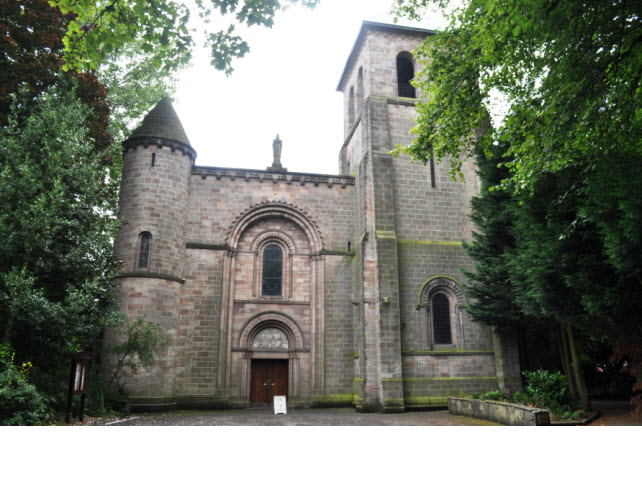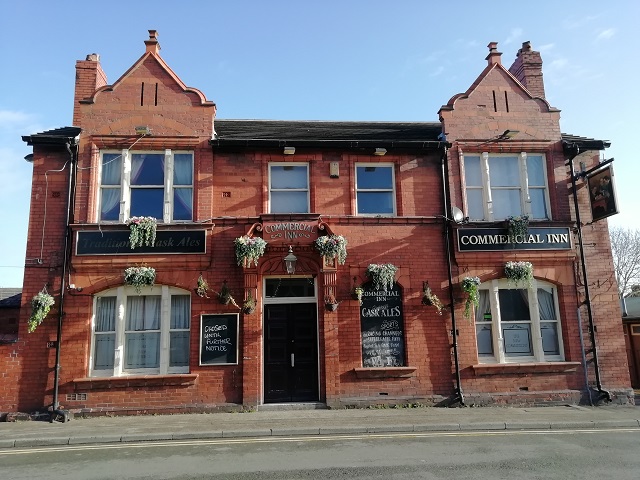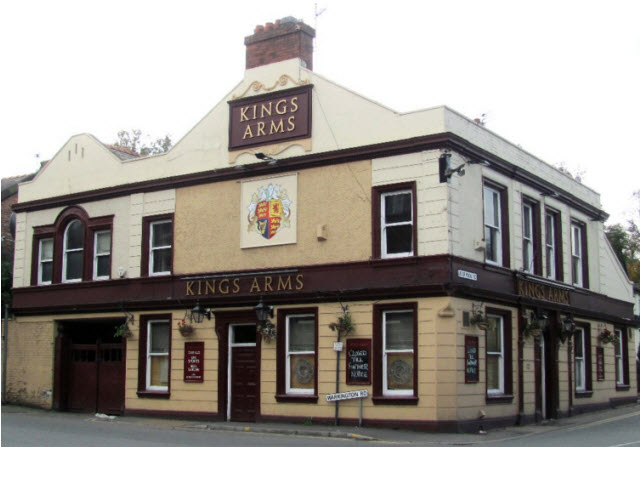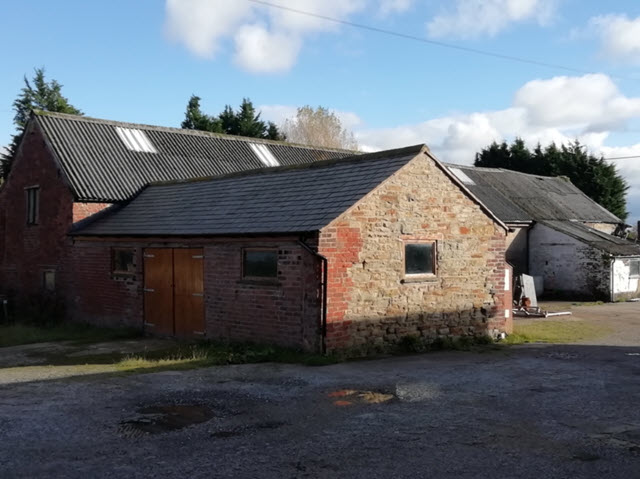St Oswalds Church
Liverpool Road, Ashton
Description
A highly accomplished exercise in historicism, St Oswald’s is the culmination of a series of church designs by J. Sydney Brocklesby, including St George Derby (1920) and St Augustine Nottingham (1923) inspired by the Romanesque churches of the south of France. The quality of the stone carving is very good, and there is excellent Arts & Crafts stained glass by Harry Clarke of Dublin. The church houses a shrine containing the Holy Hand of the martyr St Edmund Arrowsmith.
The first Catholic chapel was built here in 1822, and both the cast-iron entrance gates to the churchyard and the substantial presbytery date from that time. The present church was built on the site of the old in the 1920s. The foundation stone was laid in 1925, and the church was opened in September 1930. It is said that the church was built using local labour to provide relief during the Depression. It is built of Darley Dale and Parbold stone.
The church houses the shrine of the Holy Hand of St Edmund Arrowsmith, who was from Haydock and was martyred at Lancaster in 1628. After he had been hanged, drawn and quartered, a Catholic managed to cut off one of the martyr’s hands, which is now preserved in a silver casket in the church. The Holy Hand has been the object of veneration for over two centuries.
Source: TakingStock
__________________________________________________________________________
The church had a long association with the Gerard family of Ashton. The church was founded by the family in the 1820's from money left by Sir William Gerard, eleventh baronet, where they prayed and were buried in the 19th and 20th century.
The church contains the hand of Edmund Arrowsmith, whose mother was a Gerard. He was the grandson of Nicholas Gerard who stood firm for his faith in Elizabethan times. Edmund christened Bryan was betrayed, condemned, and executed in 1628. His hand was brought to Ashton and after being kept by the Gerards was placed in a special silver casket in the new church of St. Oswald in 1930.
Hilda Plant
____________________________________________________
History of the New Church
History of the Old Church
The Gerards of Ashton-in-Makerfield
__________________________________________________________




